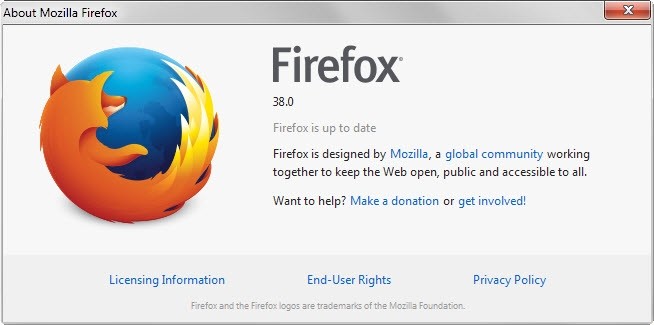Nearly a year to the day, Mozilla reluctantly announced plans to begin implementing a component that would allow content wrapped in digital rights management (DRM) to be played using HTML5 within Firefox. The fruits of Mozilla's year-long efforts are now baked into the latest stable release of Firefox, version 38.
As explained in a blog post on the matter, Firefox 38 implements the Encrypted Media Extensions (EME) API to support encrypted HTML5 video and audio playback. Once a user installs Firefox 38, the Adobe Content Decryption Module (CDM) will be downloaded and activated whenever a user visits a site that uses it.
Mozilla said it has enclosed CDM in a sandbox to provide a necessary layer of security. And for those that don't want CDM, there's also a version of the browser available without it.
Elsewhere, Firefox 38 includes support for Ruby annotations and has added tab-based preferences. Mozilla said it has also improved Firefox page load times via speculative connection warmup and fixed various security issues.
The big news here, however, is DRM. The foundation found itself between a rock and a hard place on the topic a year ago. On one hand, customers want to be able to watch videos from sites like Netflix yet at the same time, parts of DRM are closed which of course goes against Mozilla's open-source nature.
Despite implementing it, Mozilla contends that it doesn't believe DRM is a desirable market solution but is currently the only way to watch a popular segment of content.
